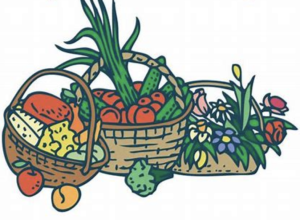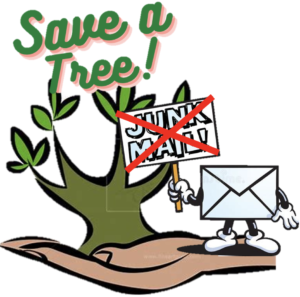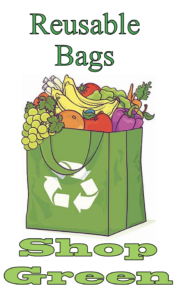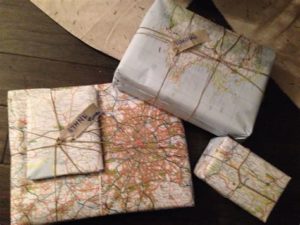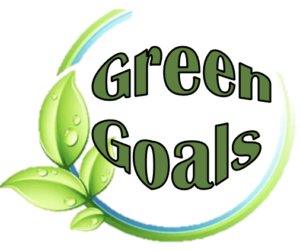 2021-2022
2021-2022
Some links on this page are to outside sources. Please note that MASC has no ownership or control of outside resources.
May 2022
We challenge you to support and buy produce from farmer’s markets this month. As May offers sunshine and rain, many fruits and vegetables are readily available at local farmers’ markets across the state. Buying produce locally has a multitude of benefits for your family, farmers, and the environment. Shopping at local markets is better for the environment since less transportation is needed, so less carbon is released into the atmosphere. Additionally, buying farmers’ products will support them and their families and promote a sense of community. These local items are also likely to have higher nutritional values by being fresher, flavorful, all-natural, and organic. Possibly best of all, you have the advantage of knowing where your food is coming from! Some farms around Maryland include McCutcheon’s Apple Products, Hancock Farms, Homestead Farm, Larriland Farm, and Butler’s Orchard. Always be on the lookout for farms near you, so your family can benefit from local produce!
April 2022
What positive impact will you have on the environment today? We have a suggestion that requires little effort yet is crucial to combat detrimental chemicals: start creating rain gardens! Rain gardens are created by making a steep area in your residential back/ front yard and “placing” a garden there which rain can run into. These spaces absorb chemicals before they run off into your water. Think of it as a craft project that can reduce the damage to our waterways! By keeping a rain garden where the path of rain can take its course, you are doing both yourself and the bay a favor.
This article (outside source) explains how to make a rain garden: https://www.familyhandyman.com/project/how-to-build-a-rain-garden-in-your-yard/
March 2022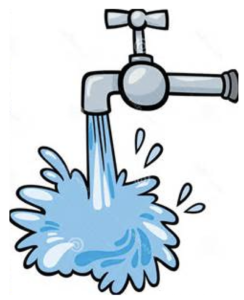
This month, be aware of how you use water and how you can help conserve it! Simple everyday activities we do without a second thought may contaminate our water sources or, just as badly, compromise the sustainability of our water usage. We are often unaware of harmful practices, from plastic water bottles to improper waste disposal or gutter cleaning, which can contaminate our waters. So, this month, let us take action against this!
It may be helpful to first research – read an article, watch a video or two – and learn a bit more about water sustainability. Once you grasp the idea, try to use reusable water bottles, and when disposing of liquids, make sure it is not in an uncontrolled urban environment. Check twice to ensure your trash does not end up on roads, waterways, or sidewalks, and make sure to discard liquids into sinks instead of your everyday trash bag.
If gardening, try to limit your use of fertilizers or pesticides. You can even clean your house gutters before the rain takes with it all of the harmful chemicals that accumulate! With each of these actions, you can prevent dangerous runoff with the potential to pollute ecosystems in our waters. The nitrogen and phosphorus our plastic bottles, trash, gutters, and gardening chemicals release onto groundwater can wash up into bays and overstimulate harmful aquatic growth. Next month we will introduce you to an innovative way that you can prevent these recurring problems.
February 2022
Each year, more than 100 million trees’ worth of bulk mail arrive in American mailboxes! We can save energy and trees by opting out of maillists to prevent junk mail from showing up in our mailboxes. Here are a few ways that will allow you to switch to online methods:
• Call 1-888-5-OPTOUT to remove your records from credit card/ insurance mailing lists.
• If you receive unwanted catalogs or other mail from specific sources, call the customer service number associated with that company.
Alternatively, the most convenient of all is to visit 41pounds.org. This online service can help eliminate 80–95 percent of junk mailings by contacting dozens of direct marketers on your behalf. A one-time fee of $41 covers all adults in your household for five years. The best part is that a third of this fee is donated to an environmental organization of your choice! Let’s all join the effort to save the trees!
January 2022
As people go through self-checkout or through the checkout lanes to pay for their groceries, they tend to use up many plastic bags, which is a huge mistake! As we all know, plastic is catastrophic for the environment! Plastic takes hundreds of years to decompose and is also known for sickening and killing many animals and marine life. We have to stand up against this!
The next time you go to a grocery store, consider using reusable shopping bags. If you do not have any, buy some! Reusable shopping bags limit the amount of plastic that pollutes the earth and are a great way to be environmentally friendly!
However, if you end up using plastic bags, make sure to reuse those bags once or twice, and do not just throw them away. We always have to remember to keep the three R’s in mind: Reduce, Reuse, and Recycle.
So, the next time you go shopping, remember to use reusable shopping bags and always have an environmentally friendly mindset! Shop green!
As the holiday season approaches, we would like to help simplify your act of giving sustainably by focusing on wrapping paper. Surprisingly, half the paper used in America is used to wrap consumer products. Therefore, having an alternative option is necessary to help decrease that statistic. First, always make sure to look at the labeling and choose wrapping paper made of hemp or consists of recycled content. Below are other significant suggestions that can make all the difference include:
• AVOID buying metallic or glossy foil material wrapping paper.
• ALWAYS reuse paper if possible, instead of buying more paper, use things lying around the house.
• DO NOT overuse tape as it will inhibit you from saving the wrapping paper for another time.
November 2021
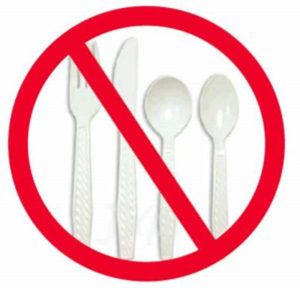 Advocate for stores/eateries in Maryland to stop putting non-reusable utensils in carryout bags meant to go home. If people are ordering from home, there is not much use for plastics and other non-reusable items in bags. Why place plastic spoons, forks, and knives in bags when customers can use reusable utensils found in their homes. This green goal can start at a small scale (with smaller-sized businesses) and branch out to bigger stores, restaurants, and eatery chains within Maryland. This green goal will efficiently reduce the usage of plastics in many places. You can be a part of this timely change by making it your priority to indicate that you will be using your own utensils during the ordering process!
Advocate for stores/eateries in Maryland to stop putting non-reusable utensils in carryout bags meant to go home. If people are ordering from home, there is not much use for plastics and other non-reusable items in bags. Why place plastic spoons, forks, and knives in bags when customers can use reusable utensils found in their homes. This green goal can start at a small scale (with smaller-sized businesses) and branch out to bigger stores, restaurants, and eatery chains within Maryland. This green goal will efficiently reduce the usage of plastics in many places. You can be a part of this timely change by making it your priority to indicate that you will be using your own utensils during the ordering process!
October 2021
Colder weather is approaching so as you freshen up your wardrobe, try to shop at sustainable stores and companies for warmer clothes! Brands such as Levi’s and Patagonia have positive impacts on our environment. While some fast fashion companies create vast amounts of pollution and waste. According to statistics and research, many other companies have a harmful impact on the environment, too. (outside source: https://www.vox.com/2019/9/12/20860620/fast-fashion-zara-hm-forever-21-boohoo-environment-cost.)
It is also important to note that once you make any purchases of clothes, do not throw out your old ones! Try to give them a new life by donating them to your local clothing drop-off locations!
Here is an article that you can use to make your own determination of what brands to support (outside source: https://www.sustainably-chic.com/blog/fast-fashion-brands-to-avoid).
September 2021
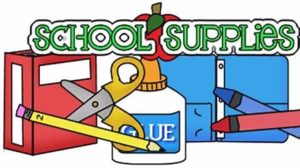 As students are settling in and adapting to their school environment, we challenge you to waste zero school or stationery supplies. A few strategies that will help you accomplish this goal is to use what you already have! Don’t rebuy if there are lost or forgotten supplies lying around your house. In order to be eco-friendly, there are many other options to resort to such as donating or recycling supplies that may not be useful to you anymore. Lastly, if some items on your shopping list cannot be satisfied, search for them around the web on secondhand online businesses like eBay!
As students are settling in and adapting to their school environment, we challenge you to waste zero school or stationery supplies. A few strategies that will help you accomplish this goal is to use what you already have! Don’t rebuy if there are lost or forgotten supplies lying around your house. In order to be eco-friendly, there are many other options to resort to such as donating or recycling supplies that may not be useful to you anymore. Lastly, if some items on your shopping list cannot be satisfied, search for them around the web on secondhand online businesses like eBay!
August 2021
This back-to-school season, buy sustainable school supplies! Look for durable supplies that don’t have to be quickly replaced and can be used again next year. Although such products can be a few dollars more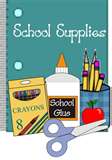 expensive, their long-lasting quality gives them considerably higher value. Some examples of materials that can be used for more than a year include mechanical pencils over wooden ones, refillable pens, cloth pencil pouches over plastic ones, and “binder notebooks” or Rocketbooks over paper/cardboard ones. Reuse materials from previous years such as folders, drawing materials, and notebooks with sufficient amounts of remaining pages.
expensive, their long-lasting quality gives them considerably higher value. Some examples of materials that can be used for more than a year include mechanical pencils over wooden ones, refillable pens, cloth pencil pouches over plastic ones, and “binder notebooks” or Rocketbooks over paper/cardboard ones. Reuse materials from previous years such as folders, drawing materials, and notebooks with sufficient amounts of remaining pages.
One helpful idea is to insert loose-leaf paper and sheet protectors into three-prong folders or flexible binders, creating notebooks that don’t leave unusable extra pages. This also leaves room for miscellaneous papers and small supply pouches within the notebook, reducing the number of separate binders, folders, and notebooks you have to buy.
Consciously reducing your waste when restocking supplies by buying less and thinking creatively is one of the easiest environmentally friendly habits to adopt. Make it your goal this year!
 Maryland Association
Maryland Association
